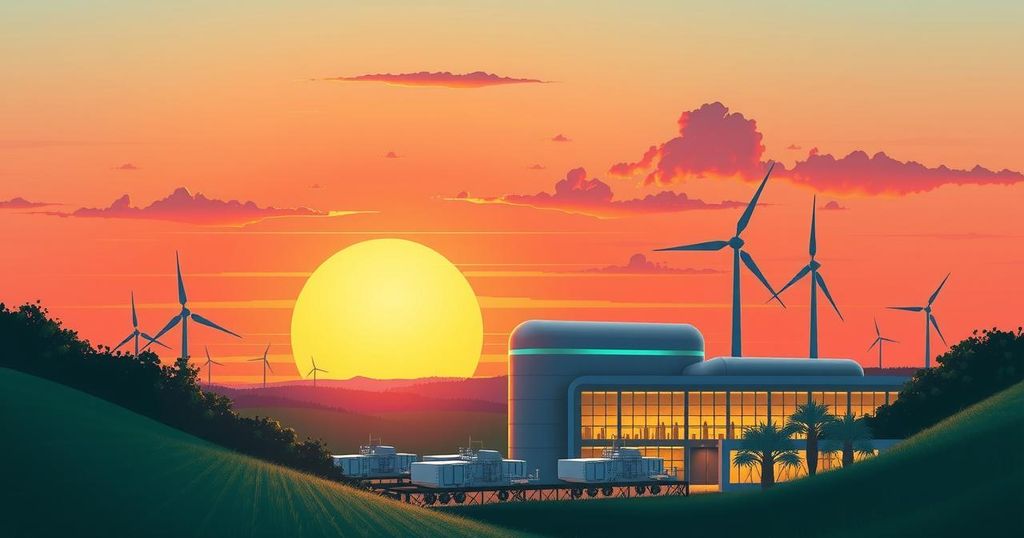Cars
ASIA, AUTOMOTIVE INDUSTRY, CHINA, ECOCERE, ECOCERES, ENERGY, EUROPE, FINLAND, HONG KONG, HONG KONG & CHINA GAS, INDONESIA, INDUSTRY, INTERNATIONAL AIR TRANSPORT ASSOCIATION, JIANGSU, JOHOR, LEE SHAU KEE, LIEVONEN, MALAYSIA, MATT, MATTI LIEVONEN, MEXICO, NORTH AMERICA, RENEWABLE ENERGY, SUSTAINABILITY, TOWNGAS, U. S
David O'Sullivan
0 Comments
Ecoceres: Pioneering Sustainable Aviation Fuel Production in Hong Kong
Ecoceres, a Hong Kong-based startup, has reached unicorn status by producing sustainable aviation fuel from animal fat and used cooking oil. Projected to increase its SAF production to 700,000 tonnes annually, the company aims to achieve the highest yield in the industry. Its developments align with global decarbonization efforts in aviation amid increasing regulatory demands for sustainable fuel.
Ecoceres, a Hong Kong-based startup focused on producing sustainable aviation fuel (SAF), has achieved unicorn status with a valuation of nearly $1.5 billion. The company converts animal fat and used cooking oil into renewable jet fuel, significantly reducing greenhouse gas emissions from air travel. By the end of 2023, Ecoceres aims to ramp up its SAF production to 700,000 tonnes annually, aided by the opening of a new facility in Malaysia, which will enhance its production capabilities and yield efficiency. The aviation industry is increasingly adopting SAF to meet sustainability targets, driven by regulatory demands and a growing commitment to combat climate change.
Founded as a biorefining project in 2008, Ecoceres spun off from Hong Kong & China Gas in 2021 and subsequently secured substantial investments from firms like Bain Capital. The company forecasts that by 2025, its Malaysia plant will achieve a yield of 85%, far surpassing the industry average of 40-55%. This expansion will allow Ecoceres to capture a larger share of the SAF market and meet rising demands from airlines transitioning to greener fuels.
Ecoceres continues to explore innovative feedstocks, including carinata, which can be cultivated on marginal lands, and is developing technology to convert agricultural waste into sustainable fuels. Though SAF currently constitutes less than 0.1% of total jet fuel consumption, the company aims to address challenges such as high production costs and limited raw material availability. This venture aligns with global efforts to decarbonize aviation, which faces significant emissions challenges as air travel demand grows.
Matt Lievonen, CEO of Ecoceres, emphasizes the urgency and potential of SAF, stating, “We are really the leading company in providing the airline industry the possibilities to reduce their greenhouse gas emissions, and in providing people the possibilities to fly with good intentions.” As Ecoceres scales operations and explores diverse feedstock options, it positions itself to drive sustainable progress in the aviation sector while capitalizing on a lucrative market opportunity.
Ecoceres operates in the context of the international push for sustainability within the aviation industry, which is responsible for approximately 2.5% of global carbon dioxide emissions. As airlines commit to net-zero emissions by 2050, the demand for sustainable aviation fuel (SAF) is rising. The U.S. Department of Energy highlights SAF as a critical tool for decarbonization, thus increasing interest and investment in the field. Ecoceres’ strategic use of waste products and innovative feedstocks positions it favorably in this competitive and essential sector.
In summary, Ecoceres has positioned itself as a key player in the renewable fuel market by transforming waste materials into sustainable aviation fuel. With its ambitious growth plans and advanced technology, the startup is set to significantly impact the aviation industry’s emissions profile. As the move towards decarbonization intensifies globally, Ecoceres’ innovative approach provides both an environmental solution and profitable opportunity.
Original Source: www.forbes.com




Post Comment